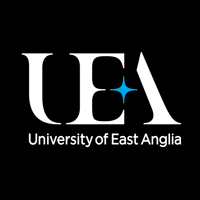fees waived
Biochemistry, BSc (Hons)
University of East Anglia, United Kingdom
Subject ranking
UK / USNews 2024 6th
UK / Guardian 2025 7th
UK / USNews 2024 15th
Costs
food & rentS$17K / year
Entry requirements
Scholarships
Limited quantity
Limited quantity
Limited quantity
Limited quantity
Information
Code
Intakes
Website (External)
Programmes
Information
Duration
2028
Course summary
OverviewImmerse yourself in the wonder of biological organisms and processes at the molecular level. Explore aspects of life from molecules to cells, from tissues to organisms. Learn from leading research scientists who are specialists in their fields of study. Our Biochemistry degrees at UEA are taught jointly by the Schools of Biological Sciences and Chemistry, with invaluable contributions from scientists from other research institutions located nearby in the Norwich Research Park. This dual approach means that in all elements of the course you benefit from subject-specific experts who inform our teaching. During your time at UEA, you’ll have the chance to study a range of fascinating subjects, progressing from the basics of biochemistry to higher-level research areas such as protein engineering and cancer biology. You’ll not only learn how to perform ground-breaking and highly specialised research, but also how to interpret and communicate these findings to the wider scientific community. As a Biochemistry student you’ll benefit from our enviable position as an integral partner of the Norwich Research Park (NRP), which houses the Norfolk and Norwich University Hospital as well as leading research institutes such as the John Innes Centre, an international centre of excellence in plant science, genetics and microbiology, the Sainsbury Laboratory for research into plant disease resistance, the Earlham Institute for genomics, bioinformatics and molecular biology research, and the Quadram Institute, where research focuses on human health, food and disease. The Norwich Research Park is one of the largest single-site concentrations of food, genomics and health scientists in Europe. This course will prepare you to work in industry or to progress to a postgraduate degree and a career in research. Having learned on our biochemistry course about cutting edge methods in synthetic, chemical and structural biology, you’ll have the potential to make an impact on many areas of contemporary science, including health, nutrition, clean energy and tackling pollution. Biochemists are frequent winners of the Nobel Prize for Chemistry and Michael Houghton, an alumnus of the UEA School of Biological Sciences and Biochemistry PhD, won the Nobel prize for Physiology or Medicine in 2020. DisclaimerCourse details are subject to change. You should always confirm the details on the provider's website: www.uea.ac.uk Year 1 will give you a grounding in fundamental biochemistry with six compulsory modules such as Bonding, Structure and Periodicity, and Chemistry of Carbon-Based Compounds. In Year 2, you will build on your knowledge with further compulsory modules alongside optional modules, such as Cell Biology and Genetics. In your final year, you will be given a wide range of optional modules to tailor your studies to your interests. Modules that can be chosen range from Plant Biology to Protein Structure, Chemistry and Engineering.Modules
Year 1 will give you a grounding in fundamental biochemistry with six compulsory modules such as Bonding, Structure and Periodicity, and Chemistry of Carbon-Based Compounds. In Year 2, you will build on your knowledge with further compulsory modules alongside optional modules, such as Cell Biology and Genetics. In your final year, you will be given a wide range of optional modules to tailor your studies to your interests. Modules that can be chosen range from Plant Biology to Protein Structure, Chemistry and Engineering.
A local representative of University of East Anglia in Singapore is available online to assist you with enquiries about this course.

